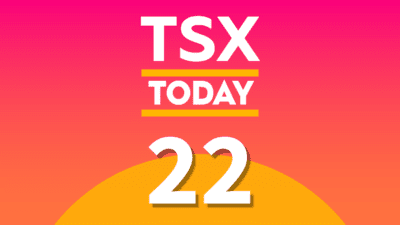Imperial Oil’s (TSX: IMO, NYSEMKT: IMO) Chief Executive Rich Kruger has a bold vision. At a time when most industry rivals are cutting production targets, Kruger is aiming to more than double his company’s output to 600,000 barrels per day by 2020. But there’s one risk that could derail Imperial’s growth plans: runaway costs at its Kearl megaproject.
Cost overruns at Kearl
If Imperial is to hit its long term production targets, the success of the Kearl bitumen mining project is essential. However, it’s off to a rocky start. Phase 1 – which is expected to produce 110,000 barrels per day – was completed six months behind schedule and $5 billion over budget. The cost figure for the first phase ballooned to $12.9 billion versus the original $7.9 billion estimate.
Kruger is confident that Kearl’s second phase – which is expected to produce 235,000 barrels per day when completed in 2015 – will go smoother. He argues that the cost overruns during phase one weren’t nearly as massive as they seemed because the original estimates assumed that the project would be completed in three phases rather than the revised plan of two. Once the company decided to complete the project in two phases, costs jumped to $10.9 billion.
Of course, this leaves $2 billion unaccounted. Imperial admitted that much of these cost overruns were due to component transit issues that arose during construction. The company faced legal and regulatory delays as it tried to move enormous pieces of equipment across the continent. These modules – some of which weighed over 200 tonnes – were built in South Korea, shipped across the Pacific Ocean, landed on the U.S. West coast and then trucked north for assembly in Edmonton. It was an impressive logistical feat.
But investors weren’t impressed. In a research note to clients, CIBC World Markets claimed that cost overruns and delays had tarnished Imperial’s reputation as a ‘premium operator’. The research note further explained that under the revised cost structure, Phase one of Kearl would only deliver a 7% internal rate of return with oil prices at $85 per barrel. Not an impressive figure for a relatively risky oil sands project.
Will this be repeated again?
So should investors expect runaway costs to hamper results again during phase two? Fortunately, Imperial has taken steps to avoid the same problems in the future. First, all of the bigger modules will be built and assembled in Edmonton to avoid any transportation issues. Second, ExxonMobil (NYSE: XOM) – which has a 30% non-operating stake in Kearl and owns 69% of Imperial – has lent its top project manager to the project. Finally, the company built in many redundancies into the first phase, which will likely result in better production reliability over the long run.
But there’s still the problem of chronic material and labour shortages in northern Alberta, which is driving up costs industry-wide. According to a report from the Canadian Energy Research Institute published earlier this year, the supply costs for a new oil sands mine without an upgrader climbed 13.2% from a year ago to $68.30 a barrel. New environmental standards such as restrictions on tailings ponds and emission limits could raise that figure further.
And Imperial isn’t the only company struggling to control costs. Last quarter, Cenovus (TSX: CVE, NYSE: CVE) missed analysts estimates due to higher operating expenses (opex) at the company’s oil sand operations. Management also raised their opex guidance due to rising trucking costs, electricity prices and maintenance. Cenovus’ issues help to highlight the real cost pressure in the oil patch.
Foolish bottom line
Rich Kruger’s term at Imperial will be judged mostly by the success or failure of Kearl. If the company is to achieve its long term production goals, the megaproject is critical. But the rising price of doing business in the oil sands means investors should bake higher costs estimates into their own forecasts.
Motley Fool Canada’s top 2 stock ideas
Our senior investment analyst will unveil his top two stock ideas for new money now on Oct. 1. And YOU can be one of the select few investors to find out first — just click here to reserve your invitation.
Fool contributor Robert Baillieul doesn’t own shares in any companies mentioned. The Motley Fool doesn’t own shares in any companies mentioned.







